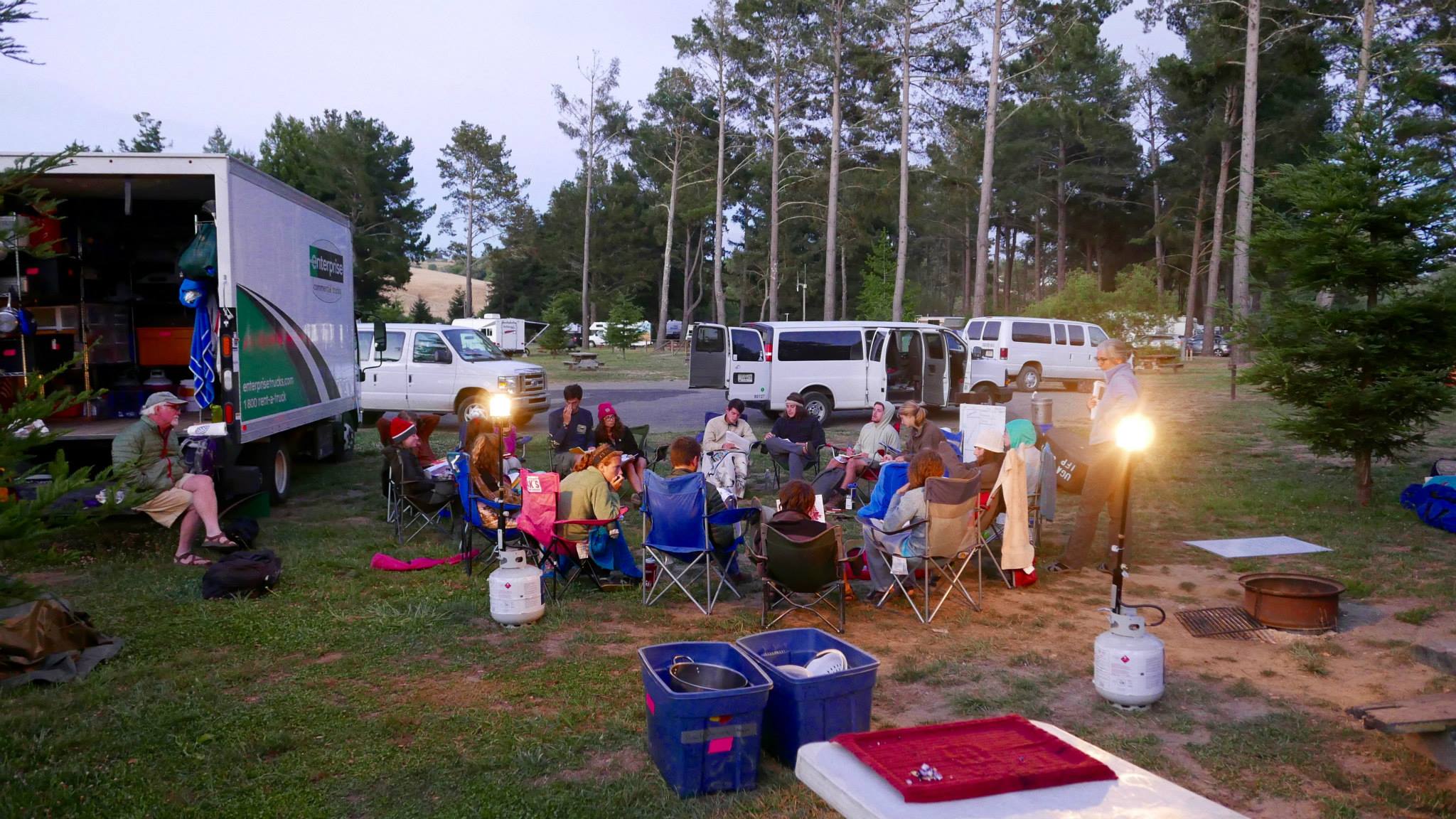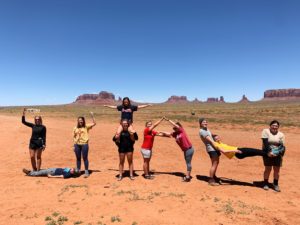In this section, we will talk about:
Participation in the IFP will prompt some changes in your lifestyle and priorities. For some of you, this program might be your first extended trip away from home, or perhaps your first university coursework. Some things, like appearance, that were important back in civilization, will be of much less significance in the field. Keeping warm (or cool), dry, clean, and well rested (conditions which are generally taken for granted back home) will assume much greater importance in your life. You will find yourself adjusting to these lifestyle changes with little effort if you begin the program properly equipped and well-informed, and if you take advantage of the support our staff and your fellow students have to offer. Your success on the IFP will be a function of your attitude.
The following pointers are worth considering when deciding whether this field program is for you. They come from our experience with many other students like yourself. You will be much better able to cope with the environment of the program if you take these pointers seriously, and you will find that your academic performance will generally improve if you pay attention to some of the non-academic things. It’s up to you – you can deal with the challenges of the trip in your own way – but these suggestions have helped others and they can help you too.
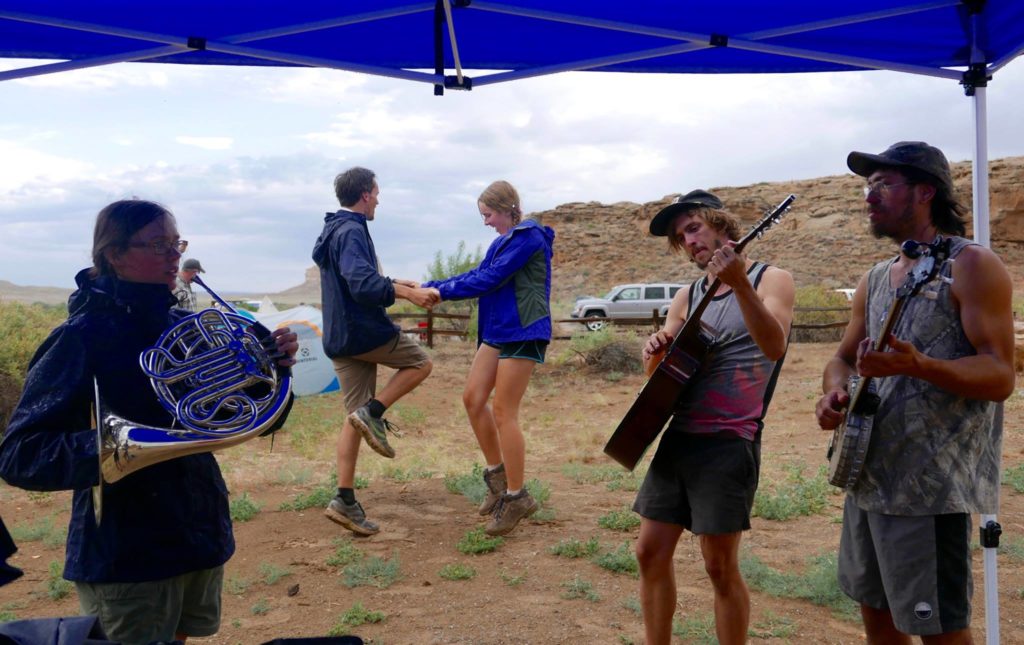
Organizational Expectations
There is a rigid time schedule that we have to stick to, or our instructional time will be lost. You can’t be late – for meals, for departure time, or for lecture. If you are a consistent no-show, you will get your colleagues perpetually irritated at you, and it won’t improve your relationship with the instructors either.
Organization is the key to survival. We provide our field participants with the following guidelines:
- Organize your bags. Subdivide them by putting similar items in plastic bags inside the duffel bag: socks in one bag (paired up), shirts in another, shorts in another, etc. Keep these bags in the same relative positions in your large duffel: pants are always under shirts on the right-hand side, and so on. You should be able to find anything in the bag quickly, by touch, without a light. However, keep your flashlight/headlamp with your toilet kit, so you will always know where it is. The minutes you lose in tearing your bag apart every day to find a missing sock (and thereby randomizing the order of everything in the bag) can add up to many hours, many delays, and much lost study time over two months.
- Each evening, lay out your clothing and gear for the following day. This takes a lot of discipline when you are tired, but really make the effort. If you have kitchen duty on a traveling day, pack up everything you can the night before. If we are going to be in camp for several days, don’t let your tent degenerate into a slum. It will often be your only place for privacy; keep it inviting.
- Become a list maker. Keep a list of things to do and a list of things to buy. Remember that you won’t have regular access to stores, and if you forget supplies you need, it may be days before you will be able to hunt for that item again. Lists keep your mind from getting bogged down with too many details.
- Organize your field equipment. Make your stuff easy to find and easy to put away. Your hand lens, for instance, should be on a cord around your neck, maybe tucked into a shirt pocket, NOT zipped into a compartment of your day pack. You don’t want to take the pack off every time you have to examine a rock – and you will fall into the bad habit of not using it the lens if it isn’t easy to get to. Save your pack for limited-access items like lunch, rain gear, camera, etc. Keep your field notebook easily accessible, not buried in the pack, and remember to write in it often.
Academic Expectations
We have been running this program since 1988, and we know what students are able to do. There’s nothing in the program that is too intellectually demanding for you to handle. However, you must be willing to try out new techniques. For those of you just out of high school, remember that university work is different than high school work, and that the IFP is unique among college courses! Techniques that served you well in high school will not necessarily be adequate here. Memorizing a large amount of information is less important than organizing and synthesizing, and we will expect you to do a lot of this on your own, without prompting.
Don’t depend on “cramming” for exams, even if you’ve found this a successful technique in the past. This course is not designed that way. You will be learning, thinking about, and discussing new concepts every day. Don’t ever ask a faculty member to cut short field work “so you can get back and study for the test.” You’re out here to learn from field work.
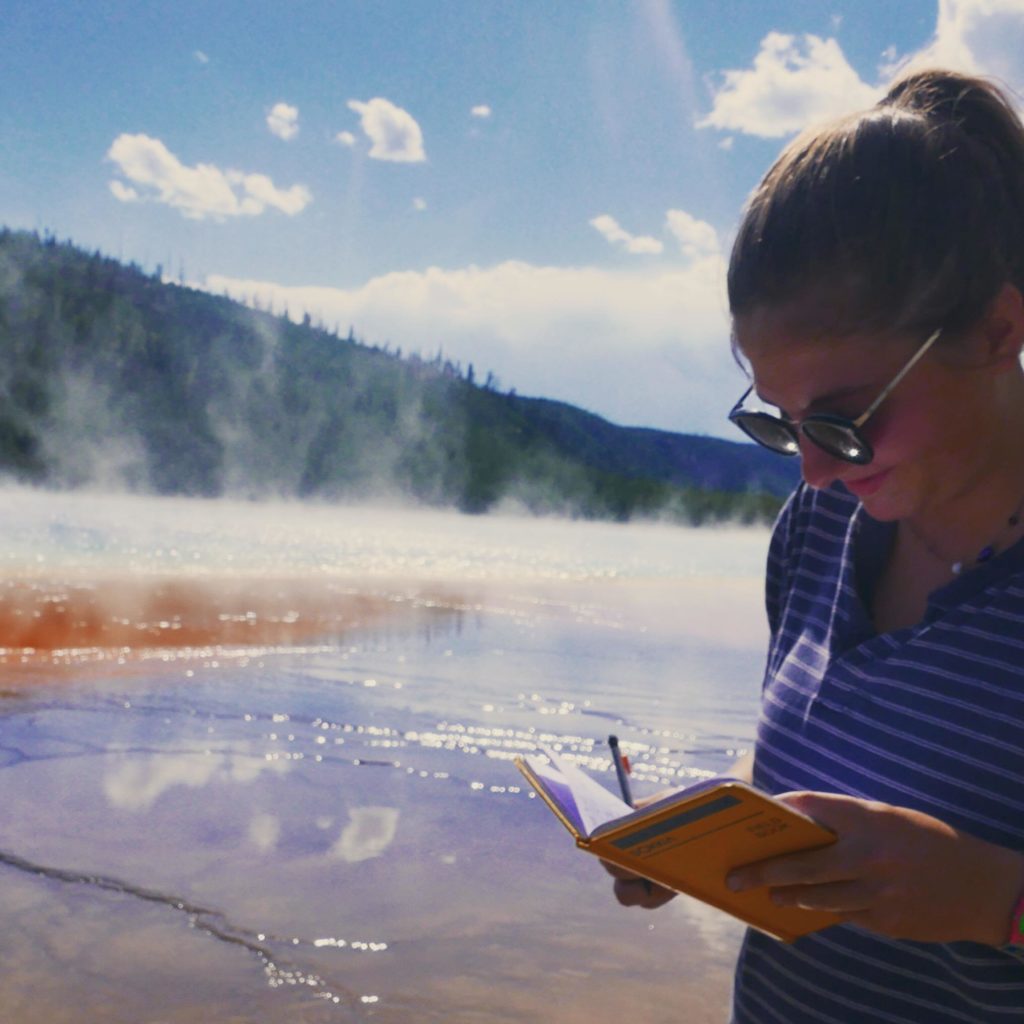
You will need to keep up-to-date on reading assignments. If it helps your comprehension, create your own study sheet by summarizing the material in an outline in your own words. This brings a part of your brain into operation that is not involved in memorizing highlighted text; you will find that your retention of the material will increase dramatically. You should always try to relate what you have seen in the field to what you are reading. Likewise, you should be able to recall what you have read when you visit new field stops.
If you can read in the van while we are driving, you should do so. If reading in the backseat makes you carsick, ask to sit up front. If you can’t read, then watch an video assignment; or you might take a nap and stay up later to do your homework.
You will be evaluated on the exams (which will include field material), on special projects that you do, and on your field notebooks (which will be picked up and graded at random intervals, without warning.) Moral – you must stay up to date on everything, and not depend on learning things right before a test.
Pacing Yourself
Don’t spin your wheels doing unnecessary things. Concentrate on one task at a time without worrying about the others still pending. If you only do a little of one thing, then jump to another thing, then flit to something else, you’ll end up completing nothing.
Use time wisely. If you have half an hour free before dinner, don’t blow it off, but spend it on the top item in your priority list. The best students squeeze many hours of extra time into their work each week, a few minutes at a time.
Spend your days off appropriately. You’ll be working hard as an IFP student, so use your free days for rest and relaxation. Enjoy yourself, but don’t try to pack too much activity into your day off. If you get so tired that you can’t work effectively the following day, then you’re worse off than you were before.
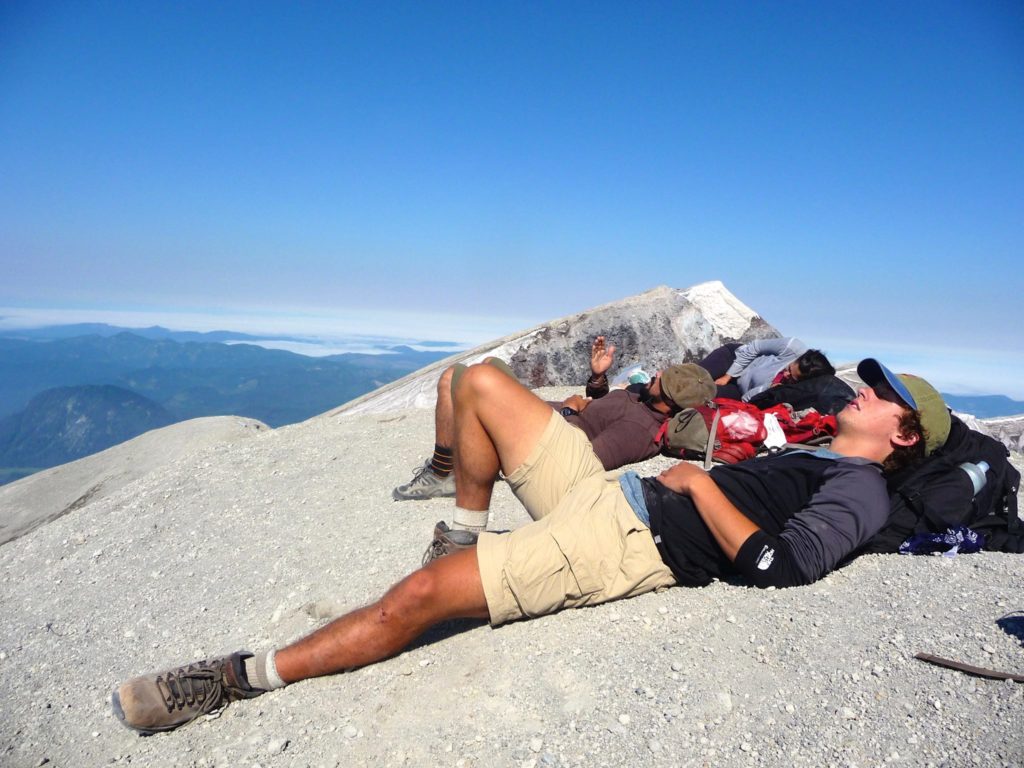
Sleep is important in pacing yourself. You will always have a lot of studying to do, and there will always be deadlines to meet, but don’t burn the candle at both ends, even if you’re used to doing this at home. Give yourself time to rest.
Keep in mind too that on this trip, you will be a member of an interconnected “family” unit. You need to perform competently and with reasonable good humor. You can’t be a good companion and colleague if you are stressed out and sleep-deprived.
Fitness and health
Remember that this can be a physically challenging summer. However, the faculty do not ask students to do anything that the we can’t do. We have several hikes in hot, dry climates (e.g. the Bright Angel Trail in the Grand Canyon) at high elevation. Some hikes challenge your ability to deal with heights (e.g. Angel’s Landing in Zion), while some challenge your persistence (e.g. Mt. St. Helens).
As a general rule of thumb, if you can walk a 5K in an hour or less, you should be able to do any of the IFP hikes. Altitude acclimatization comes with experience on the program (we have several camps above 7000 feet of elevation, and several hikes at over 8000 feet). We do not backpack, but you will often be carrying your day pack with food and supplies for the day. Remember that you will also be responsible for carrying your gear bags from the truck to your campsite.
Consider the following advice to keep yourself in condition so you can thoroughly enjoy the trip!
- We recommend you engage in some form of regular physical activity for at least a month before the IFP departs, to increase your cardiovascular endurance and muscle strength (especially your leg muscles).
- Your body is especially subject to injury early in the morning. Don’t jump right out of your sleeping bag and start loading cargo into the truck – you stand a good chance of pulling a muscle, which can bother you all summer. Do some bending and stretching when you first get up.
- NEVER drink water out of a lake or stream, no matter how clean and unspoiled it looks. Various bacterial and protozoan diseases (like Giardia) are present in almost every body of water in the country now. Some of these are minor and just make you miserable with digestive upsets for a day or two. Others are
severe, and could knock you right out of the program and into the hospital. Some students in the past have really zapped themselves by ignoring this advice. Tap water supplies in developed camping areas areok, unless specified otherwise. - In dry desert areas, you must take care of your skin. The sensitive skin around your lips and nose is especially vulnerable to drying and cracking, after which it takes a long time to heal. Keep as clean as you can, and use lip balm and moisturizing lotion. Wear your hat.
- Wearing open shoes (Chacos, flip-flops, etc.) can often result in cracked heels, which hurt a lot and can limit your ability to hike. Alternating sandals with closed shoes and clean socks can minimize this risk. Use heel balm or lotions, plus antibiotic ointment to heal heels.
- You won’t always have showers available, but you will feel better (and your seat-mates will appreciate it) if you clean up as much as possible each day. You can do quite a decent job with a washcloth, soap, and a cold-water tap (and/or cleansing wet wipes).
- Since you will inevitably be dirtier than usual, be very careful of small cuts and scratches. Don’t just ignore them. You’re not being a wimp if you use first-aid soap and antibiotic on a little cut – you’re just being smart.
- You’re depending on your feet daily in the field – take care of them! You must keep them dry; if you don’t, blisters and fungal infections will
start up . When hiking in warm-to-hot weather, always take an extra pair of socks along. Rotate them at rest stops, tying the unused ones on the back of your pack to dry out. Use the moleskin from your first-aid kit on sore spots before blisters start to develop. Air your feet out several times a day when possible; wear sandals in camp if the ground permits it. - A major problem on this trip can be dehydration; there’s a big difference between the humidity in Georgia and in Nevada. You must drink a minimum of two quarts of liquid a day, even if you don’t feel thirsty. In very hot areas you will need much more, maybe a gallon. Dehydration can sneak up on you over a period of days in hot, dry climates, making you collapse suddenly for no apparent reason. Always take full water bottles (and/or a hydration pack) out on hikes and drink often. Water is heavy to carry but necessary.
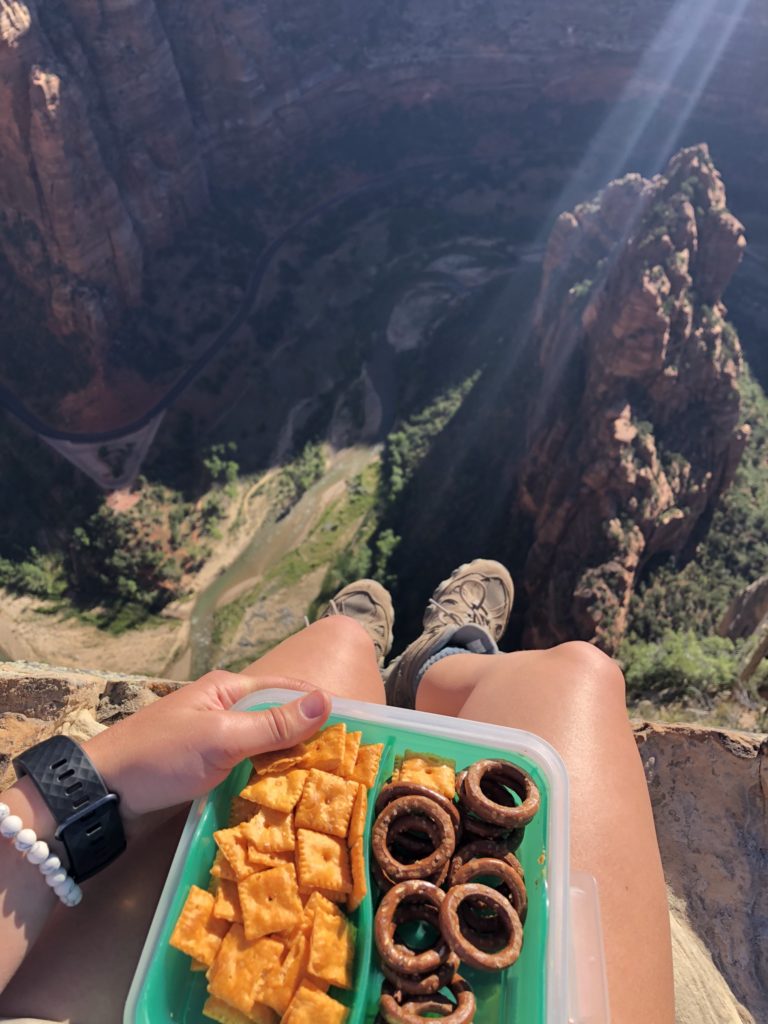
10. In hot arid environments, it is also important to replace the salts you will sweat out. We will provide salty snacks and electrolyte powder (Gatorade) for you to add to your water bottle. Take advantage of them on hikes.
11. Make sure we are aware of any dietary restrictions and food allergies you have. You should specify these on your health form and food survey before the trip begins. Be sure to talk with the cooks about products that may include items you are allergic to. We try to make reasonable allowances for peoples’ dietary preferences, but we can’t cook everything to order for everyone on the trip. Our cook will try to provide healthy food in an appealing manner – but it may not be exactly the same diet you are used to. Try to be tolerant. We normally have several people along who are vegetarians, so the cook will fix meals with both meat and non-meat choices.
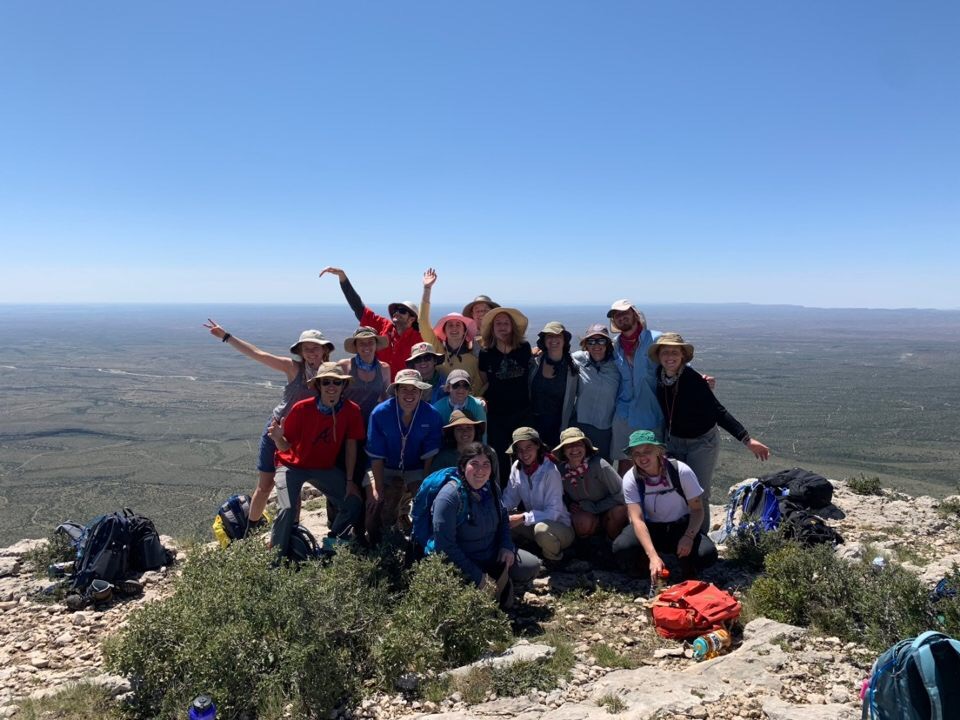
Other Thoughts
In an extended close-contact environment like this, the Golden Rule is a good one to keep in mind. Assist others if they’re obviously having problems. Think twice before complaining. Try to do more than your share. Don’t assume that things are going to be like they were back home. Respect others. If you have a personality problem with someone, try to sit down and work it out cooperatively. Finally, don’t ever hesitate to ask a staff member for help or advice – that’s what we’re here for, and we really want this summer to be a great experience for you!
The IFP is a supportive environment designed to expand your horizons. Approach the trip open to new ideas, different perspectives, physical and mental challenges, and pushing yourself beyond your comfort level. If you have that attitude, the IFP will be one of the most interesting and rewarding experiences of your life!

